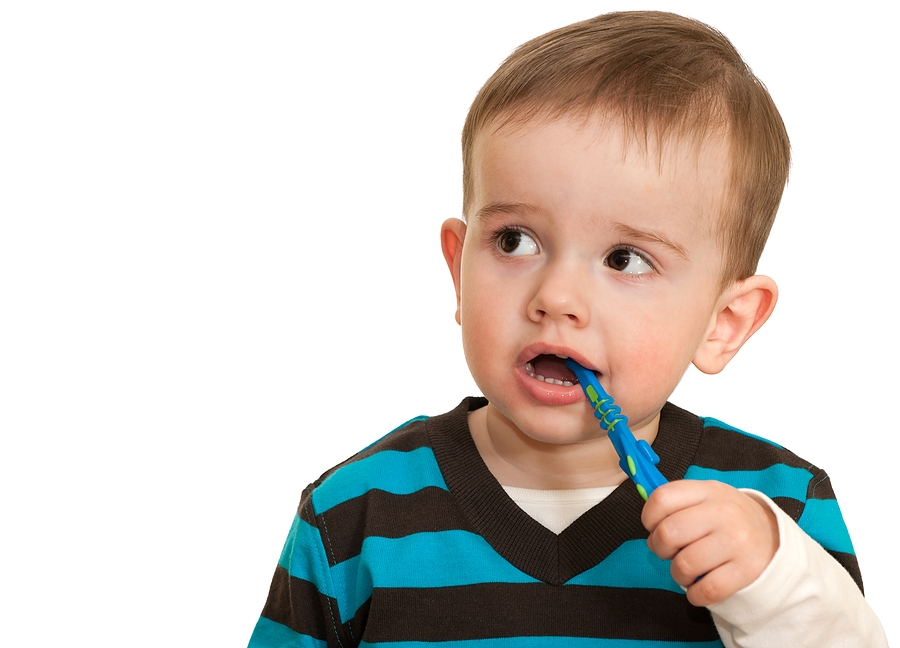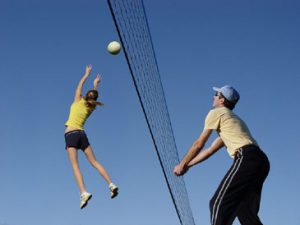
Ages 2-3: Small Chores and Basic Grooming

Ages 2-3: Small Chores and Basic Grooming
This is the age when your child will start to learn basic life skills. By the age of three, your child should be able to:
- Help put his toys away.
- Dress himself (with some help from you).
- Put his clothes in the hamper when he undresses.
- Clear his plate after meals.
- Assist in setting the table.
- Brush his teeth and wash his face with assistance.
Ages 4-5: Important Names and Numbers

Ages 4-5: Important Names and Numbers
When your child reaches this age, safety skills are high on the list. She should know:
- Her full name, address, and phone number.
- How to make an emergency call.
Your child should also learn how to:
- Perform simple cleaning chores such as dusting in easy-to-reach places and clearing the table after meals.
- Feed pets.
- Identify monetary denominations, and understand the very basic concept of how money is used.
- Brush her teeth, comb her hair, and wash her face without assistance.
- Help with basic laundry chores, such as putting her clothes away, and bringing her dirty clothes to the laundry area.
- Choose her own clothes to wear.
Ages 6-7: Basic Cooking Techniques

Ages 6-7: Basic Cooking Techniques
Kids at this age can start to help with cooking meals, and can learn to:
- Mix, stir, and cut with a dull knife.
- Make a basic meal, such as a sandwich.
- Help put the groceries away.
- Wash the dishes.
Your child should also learn how to:
- Use basic household cleaners safely.
- Straighten up the bathroom after using it.
- Make his bed without assistance.
- Bathe unsupervised.
Ages 8-9: Pride in Personal Belongings

Ages 8-9: Pride in Personal Belongings
By this time, your child should take pride in her personal belongings and take care of them properly. This includes being able to:
- Fold her clothes.
- Learn simple sewing.
- Care for outdoor toys such as her bike or roller skates.
Your child should also learn how to:
- Take care of personal hygiene without being told to do so.
- Use a broom and dustpan properly.
- Read a recipe and prepare a simple meal.
- Help create a grocery list.
- Count and make change.
- Take written phone messages.
- Help with simple lawn duties such as watering and weeding flower beds.
- Take out the trash.
Ages 10-13: Gaining Independence

Ages 10-13: Gaining Independence
Ten is about the age when your child can begin to perform many skills independently. He should know how to:
- Stay home alone.
- Go to the store and make purchases by himself.
- Change his own bed sheets.
- Use the washing machine and dryer.
- Plan and prepare a meal with several ingredients.
- Use the oven to broil or bake foods.
Your child should also learn how to:
- Read labels.
- Iron his clothes.
- Learn to use basic hand tools.
- Mow the lawn.
- Look after younger siblings or neighbors.
Ages 14-18: More Advanced Skills Are Learned

Ages 14-18: More Advanced Skills Are Learned
By the age of 14, your child should have a very good mastering of all of the previous skills. On top of that, she should also be able to:
- Perform more sophisticated cleaning and maintenance chores, such as changing the vacuum cleaner bag, cleaning the stove, and unclogging drains.
- Fill a car with gas, add air to and change a tire.
- Read and understand medicine labels and dosages.
- Interview for and get a job.
- Prepare and cook meals if needed. Try these easy and healthy recipes.
Young Adults: Preparing to Live on His Own

Young Adults: Preparing to Live on His Own
Your child will need to know how to support himself when he goes away to college or moves out. There are still a few skills he should know before venturing out on his own, including:
- Make regular doctor and dentist appointments and other important health-related appointments.
- Have a basic understanding of finances, and be able to manage his bank account, balance a checkbook, pay a bill, and use a credit card.
- Understand basic contracts, like an apartment or car lease.
- Schedule oil changes and basic car maintenance.





